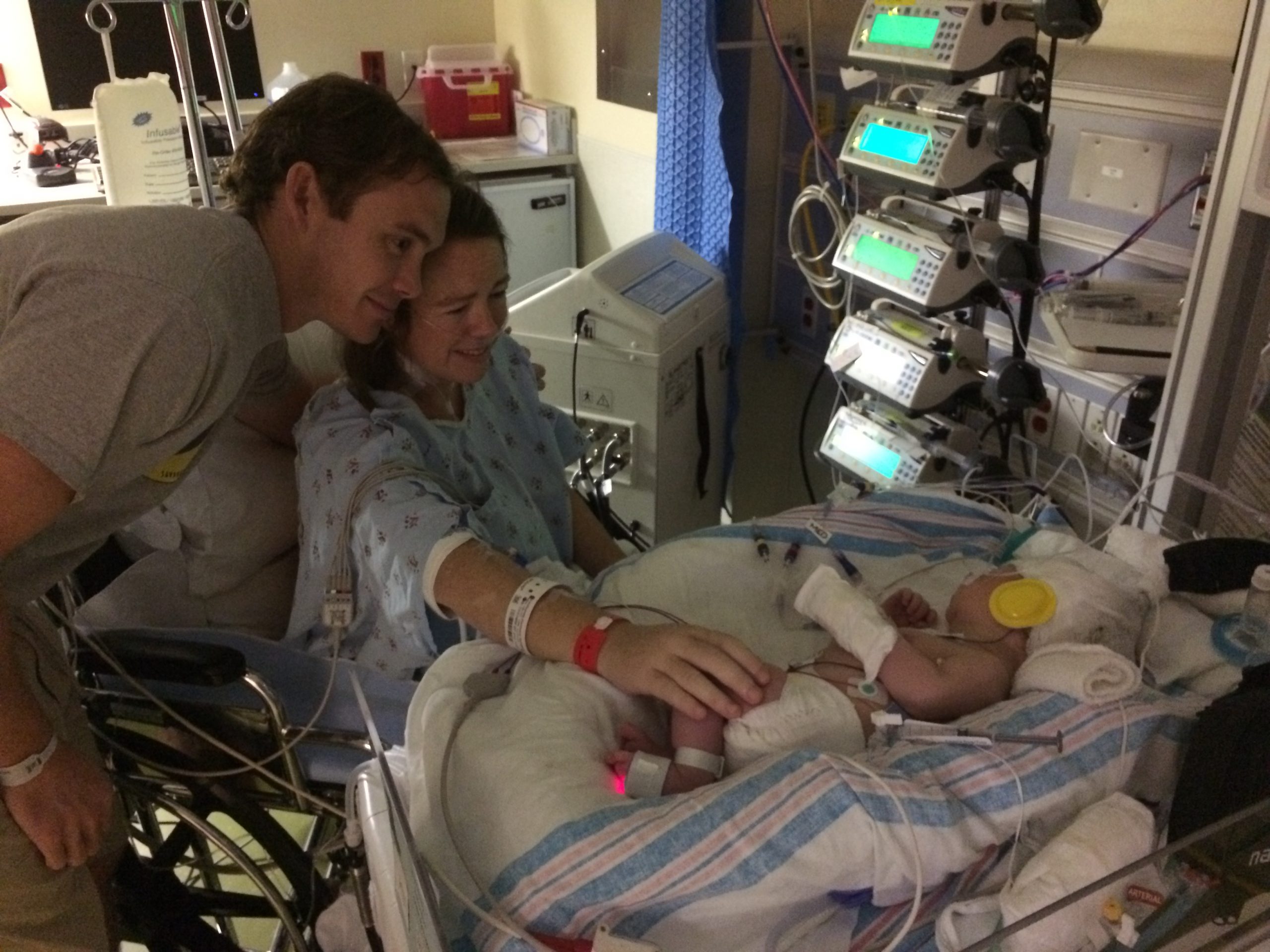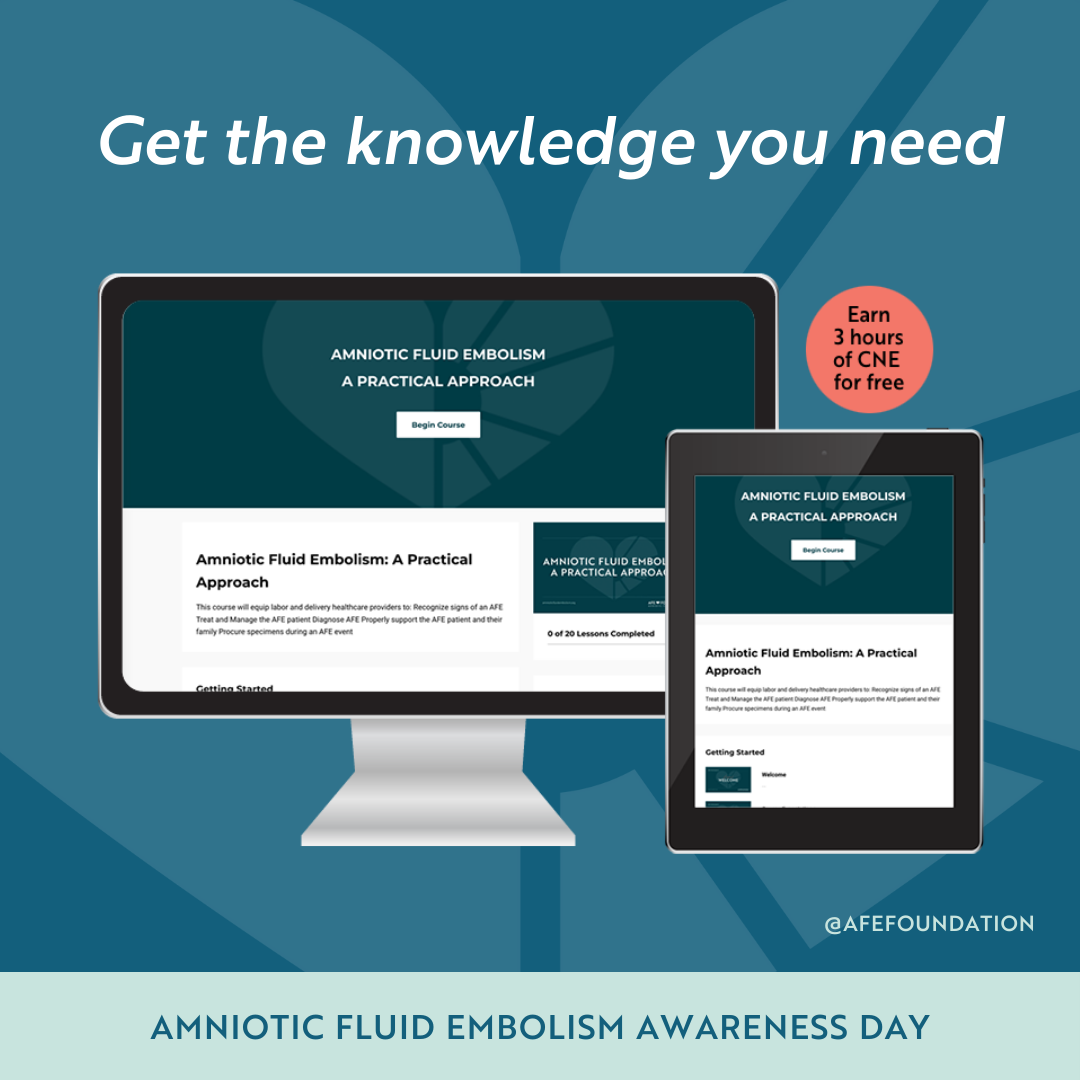Amniotic fluid embolism (AFE) is a rare but serious complication that can occur during childbirth, impacting both mothers and babies. Despite its rarity, raising awareness about AFE is crucial for early detection and effective management. Each year, AFE Awareness Day brings together communities, survivors, medical professionals, and advocates to highlight the importance of understanding this condition and its potential consequences. By fostering education and collaboration, the goal is to reduce the risks associated with AFE and improve outcomes for families worldwide.
While AFE may not be widely discussed in everyday conversations, it plays a significant role in maternal and neonatal health. Through initiatives such as the AFE Foundation's mission, global support networks, and educational programs, there is an increasing effort to educate healthcare providers and the general public about AFE. This collective effort aims to enhance early recognition and intervention, empowering individuals with the tools and knowledge they need to make informed decisions.
On a personal level, stories like Annie Sterle’s remind us of the importance of AFE awareness. Her experience during labor highlights the unpredictable nature of childbirth complications and the significance of preparedness. By sharing her story and advocating for greater awareness, she contributes to the broader mission of making AFE more preventable, predictable, and treatable. Let’s explore the various aspects of AFE awareness, including its causes, symptoms, and available resources.
Table of Contents
- What Is Afe Awareness?
- Why Is Afe Awareness Important?
- How Can We Support Afe Awareness?
- Can Afe Awareness Reduce Risks?
- Understanding the Causes of AFE
- Recognizing the Symptoms
- How Do Educational Programs Help?
- Are There Resources for Survivors and Families?
What Is Afe Awareness?
Afe awareness refers to the efforts made by individuals, organizations, and communities to educate and inform others about amniotic fluid embolism. This condition, which affects both mothers and babies, occurs when amniotic fluid enters the maternal bloodstream. It's often described as a catastrophic complication of delivery, making it essential to raise awareness about its risks and implications.
In some respects, afe awareness is about more than just understanding the medical aspects of the condition. It’s also about creating a supportive network for those who have been affected by AFE. By bringing together survivors, families, and healthcare professionals, afe awareness initiatives strive to foster a sense of unity and shared purpose.
Why Is Afe Awareness Important?
Why does afe awareness matter? Well, it’s kind of like having a safety net in place for something that doesn’t happen often but can be really serious when it does. Early recognition and prompt intervention are key to improving outcomes for mothers and babies. By increasing awareness, we can help healthcare providers and families be better prepared for the unexpected.
For instance, stories like Annie Sterle’s show us how crucial it is to have the right information and resources available. Her experience during labor was a wake-up call, emphasizing the need for greater awareness and education around AFE. This kind of awareness can make a big difference in how we approach childbirth complications.
How Can We Support Afe Awareness?
Supporting afe awareness is something that anyone can do, regardless of their background or expertise. One way to get involved is by exploring the AFE Foundation’s mission and participating in their educational programs. These programs, taught by leading experts, aim to prepare healthcare providers for the unexpected and sudden nature of AFE.
Additionally, you can take the pledge to help make AFE preventable, predictable, and treatable. By using the engagement toolkit provided by the foundation, individuals and organizations can spread the word and encourage meaningful action. It’s all about working together to create a safer environment for mothers and babies.
Can Afe Awareness Reduce Risks?
Can raising awareness about AFE actually reduce risks? Absolutely. By educating healthcare providers and the public, we can improve early recognition and intervention, which are critical for better outcomes. Understanding the signs and symptoms of AFE can help medical professionals act quickly when necessary, potentially saving lives.
For example, recognizing sudden hypotension, hypoxia, and other symptoms can make a huge difference in how AFE is managed. This knowledge empowers healthcare providers to respond effectively and efficiently, minimizing the impact of the condition on mothers and babies.
Understanding the Causes of AFE
So, what exactly causes AFE? It tends to happen when amniotic fluid, fetal cells, hair, or debris enters the maternal bloodstream. This triggers an overreaction in the mother’s immune system, leading to the complications associated with AFE. While the exact cause isn’t always clear, understanding these factors can help in developing strategies for prevention and treatment.
By studying the causes of AFE, researchers and medical professionals can work toward reducing the risks associated with this condition. This involves ongoing research, collaboration, and sharing of knowledge across the global healthcare community.
Recognizing the Symptoms
Recognizing the symptoms of AFE is a vital part of afe awareness. Symptoms can include sudden drops in blood pressure, difficulty breathing, and other signs that something isn’t quite right. These symptoms might seem subtle at first, but they can quickly escalate, making it important to act fast.
In some cases, the symptoms of AFE might be mistaken for other conditions, which is why education and awareness are so important. By learning to identify these signs, healthcare providers and families can be better equipped to handle potential complications during childbirth.
How Do Educational Programs Help?
Educational programs play a crucial role in afe awareness. They provide healthcare providers with the information and skills they need to recognize and respond to AFE effectively. These programs often include courses taught by leading experts in the field, ensuring that participants receive up-to-date and reliable information.
Upon completion of these courses, healthcare providers can feel more confident in their ability to handle unexpected situations. This not only benefits the professionals but also the families they serve, creating a safer and more informed healthcare environment.
Are There Resources for Survivors and Families?
For survivors and families affected by AFE, there are resources available to support their journey. The AFE Foundation unites the voices of families, survivors, medical professionals, and researchers, calling for greater awareness and resources to reduce the threat of AFE. This network offers a place for individuals to connect, share experiences, and find the support they need.
By accessing these resources, survivors and families can gain a better understanding of AFE and its implications. This knowledge can help them navigate the challenges they face and find comfort in knowing they’re not alone in their journey.
Finally, it’s worth noting that afe awareness is not just about the medical aspects but also about building a community of support and understanding. By working together, we can make a real difference in improving outcomes for mothers and babies affected by AFE.



